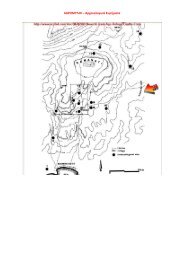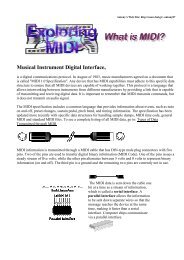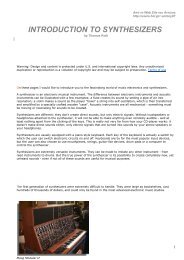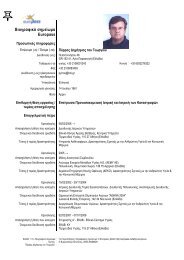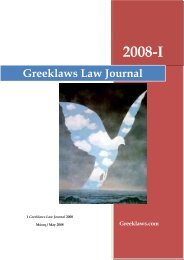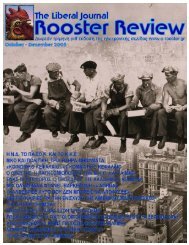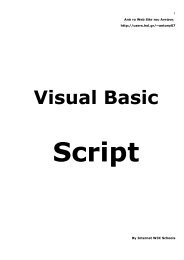Recording Handbook - Hol.gr
Recording Handbook - Hol.gr
Recording Handbook - Hol.gr
You also want an ePaper? Increase the reach of your titles
YUMPU automatically turns print PDFs into web optimized ePapers that Google loves.
amplifier are, therefore, global EQ.<br />
Q1.1.3 What is noise reduction? What is Dolby? What is DBX?<br />
See the rec.audio.pro FAQ for incredible detail about this.<br />
There are two major families of noise reduction technology which<br />
you're likely to find on 4-tracks: Dolby and DBX. These are each<br />
discussed in a para<strong>gr</strong>aph below.<br />
There are (at least) three varieties of Dolby on cassette decks, but<br />
they all work more or less the same way: whilst recording, they<br />
enhance the high frequencies in the same area where hiss occurs.<br />
During playback, they reduce those frequencies back to the same level<br />
they were originally. This also reduces the hiss. You can play back<br />
a Dolby-encoded tape without Dolby; the only effect you'll hear will<br />
be a brighter, higher top end.<br />
DBX processes the sound more severely than Dolby [and more<br />
effectively?? --DSF]. If you record using DBX, you *must* play back<br />
with it on. You may even find that a DBX-encoded tape from one<br />
machine does not replay exactly on another.<br />
56<br />
56





